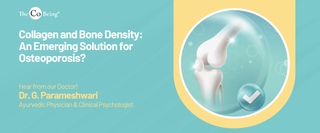Osteoporosis—often called the “silent disease”—weakens bones, making them fragile and more likely to break. While calcium and vitamin D have long been the front-runners in bone health, new research suggests that collagen may also play a crucial role in supporting bone density and reducing fracture risk.
Understanding the Role of Collagen in Bone Health
Bones aren’t just made of minerals like calcium and phosphorus—they’re also built on a collagen framework. Collagen makes up about 30% of bone mass and provides the flexibility and resilience that minerals reinforce with hardness.
Without collagen, bones would be brittle and more prone to fracture, even if mineral levels are adequate. This makes collagen a critical, though often overlooked, factor in skeletal strength.
How Collagen Supports Bone Density
Collagen contributes to bone health in several ways:
-
Structural Support: It forms a scaffold where minerals like calcium can deposit, giving bones both strength and elasticity.
-
Stimulating Bone Formation: Collagen peptides may stimulate osteoblasts (bone-building cells) to enhance bone regeneration.
-
Reducing Bone Breakdown: Some studies show collagen may influence osteoclast activity (cells that break down bone), helping maintain balance.
-
Improved Joint Health: Beyond bones, collagen supports cartilage and connective tissue, reducing stiffness and pain often associated with osteoporosis.
What the Research Says
Recent clinical studies have started to highlight collagen’s potential:
-
Collagen peptide supplementation has been linked to improved bone mineral density (BMD) in postmenopausal women.
-
Some trials show a reduction in bone turnover markers, suggesting collagen helps slow bone loss.
-
When combined with calcium and vitamin D, collagen may have a synergistic effect in protecting against osteoporosis.
-
While more large-scale studies are needed, early evidence is promising.
Collagen vs Traditional Osteoporosis Approaches
-
Calcium & Vitamin D → Strengthen mineral density in bone.
-
Bisphosphonates (e.g., alendronate) → Slow bone breakdown by inhibiting osteoclasts.
-
Collagen Peptides → Work at the foundation of bone structure, promoting strength, elasticity, and possibly regeneration.
-
Collagen doesn’t replace standard osteoporosis treatments but may serve as a complementary approach to enhance results.
Should You Consider Collagen for Bone Health?
Collagen supplements are generally safe and well tolerated. They may be especially beneficial for:
-
Postmenopausal women at risk of osteoporosis
-
Individuals with low bone density
-
Those seeking joint and bone support as part of healthy aging
-
As with any supplement, it’s best to choose a high-quality, clinically tested product and consult your healthcare provider if you’re managing osteoporosis or other bone conditions.
Supplements
-
The Co Being Marine Collagen Peptides – Our hydrolyzed marine collagen peptides provide both Type I and Type II collagen. While Type II supports joint and cartilage health, Type I works on skin, hair, and nails. Together, they offer a well-rounded solution for comprehensive beauty and joint care.
Conclusion
Collagen is emerging as more than a skin-deep supplement—it’s showing real promise in supporting bone density and strength. While it may not replace established osteoporosis treatments, it could play a valuable role as part of a holistic approach to bone health, especially when combined with calcium, vitamin D, exercise, and medical care.
As research continues, collagen may prove to be a game-changer in the fight against osteoporosis.
For further guidance, Book Your FREE CONSULTATION With Our Expert Dr! or WhatsApp us on +91 9500775666 to schedule your consultation right away!




